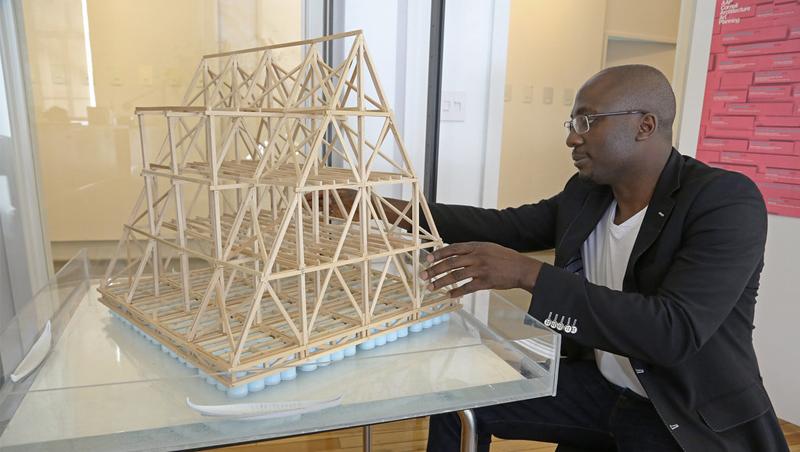
Increasingly, architects and builders are thinking about how their creations affect the health of the planet. Kunle Adeyemi has built his career around that question. Born in Kaduna, in northern Nigeria, Mr. Adeyemi, 45, is known for his sustainable projects — the Black Rhino Academy, in Karatu, Tanzania, and African Water Cities, an ecosystem of built environments in large and developing waterfront urban destinations that are meant to bring people closer to their natural habitat.
He is also behind the Makoko Floating System, a series of triangular structures on the water in five cities. The ones in Lagos, Nigeria; Venice; Bruges, Belgium; and Chengdu, China, were used temporarily, while the Floating Music Hub, which he is building in Mindelo, Cape Verde, is designed to be permanent. Based in Amsterdam, Mr. Adeyemi studied architecture at the University of Lagos and at the Princeton University School of Architecture, where he received a post-professional degree. He was introduced to the field through his father, Fola, a modernist architect who died 12 years ago. Kunle Adeyemi worked at small architecture firms in Lagos before becoming an assistant designer at the Office for Metropolitan Architecture, Rem Koolhaas’s firm in Rotterdam.
In 2010, Mr. Adeyemi left the Office for Metropolitan Architecture to start NLÉ, which means “at home” in his native Yoruba. The architecture, design and urban planning firm has five employees, several freelance consultants and focuses on projects in developing cities, particularly in Africa and on or near the water...
The New York Times: An Architect With an Eye on the Environment


